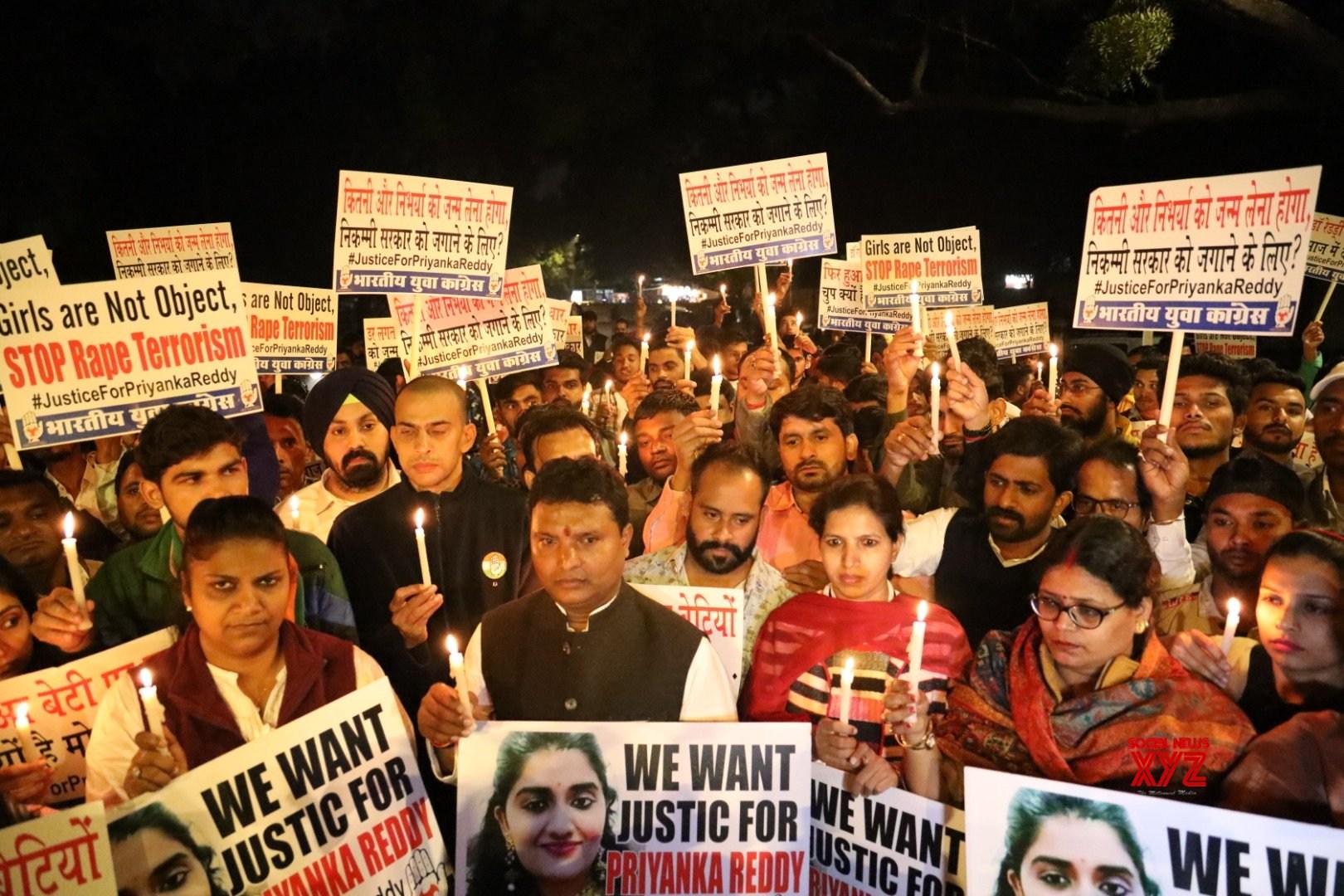Dr. B.R Ambedkar’s clarion call on solidarity has a deep meaning which is related to socializing and moralizing people. The reforms at the political and economic level need social reform first. Its stems from the idea that universal principles of equality and justice are not just mere political or social ideas but a guiding light to lead a life with dignity and respect. In that process of achieving respect and dignity, women stand at the last, due to their systemic vulnerability at various structural, societal and political levels. In these struggles of women in achieving equality, dignity, the major patriarchal weapon is sexual harassment, assault, rape and killing which holistically discourages women from getting their ‘due rights’. Every day there is an incident, some of our friends; ourselves might have been the survivors and may be still facing that systemic violence. I’m trying to simply argue that incidences of violence against women are not merely incidents happening here and there. It is systematic, categorical and it of course has societal acceptance.
We have now issues to discuss over coffee, posts to share on social media, and definitely outpour our anguish through articles, marches, debates and unending mourning of the survivor and our consciousness. There are heaps of articles
whenever there are incidents of violence against women and the vulnerable sections. After few days the outrage is gone, people are back to normal lives with the same everydayness of misogyny, gender based slurs, degrading jokes, and of course deeply entrenched heroic patriarchal behaviour. The grandeur of protectionist framework with posters, marches, politician promises, some compensation, increased patrolling, and bringing social legitimacy to moral policing gains ground. It makes us feel that we are ‘safe-hands’ of the family and the state. In this process of Protectionism, we immediately find sense of respite, and are relieved which further makes our vulnerability fragile and tenuous. The deeply underlying worrisome issue is that how to break this holy vicious cycle of victimization and protectionism.
Let me explain further, the violence on women is not only systemic at one level, for example the argument of women not being safe outside during nights, which is true but that is the only thing which leads to violence. It’s a problem which is at a huge scale and at various levels. The “multiple marginalities” faced by women at multiple fronts makes women more vulnerable and existing systems, laws, and issues are definitely inadequate. Violence on women is not a standalone phenomenon. It is deeply entrenched in social, political, economic and cultural spheres and has profound social legitimacy. So before any further delay, we need to question this dangerous acquiescence including our own families which are actively propagating such attitude and exercising it freely. This social reform needs no revolution, but a thinking conscious mind which starts with our own families first. After all, the personal is political and this personal is the starting point of people’s revolution for better change.
Why is there a problem?
I call it a selective and hypocritical outrage. Why do we need a Kathua rape incident, Unnao rape incident, Priyanka Reddy, Nirbhaya, Delta, Fatima, Pranitha, Badaun deaths and incidents of rape and violence to react? The entire o gamut of deaths of violence which includes suicides, murders, rape and assaults should question our conscience and collective consciousness. It is not just an assault on women and violence on women; it is an assault on our commitment to equality, gender justice, and progressive thinking. Why do we need deaths to react seriously? In a conversation with my friend who is fighting for justice in a sexual harassment raised this question. This is an unsettling question which all of us as a civil society should ask ourselves. Why do we want Priyanka’s death to react and debate rape culture? Aren’t we the same society which encourages marital rape? Why do we want to discuss caste and caste related deaths and violence only when dalit women are raped and assaulted? Or when thousands of manual scavengers die? Where are our gender sensibilities when we are silent on sexual harassment? Why are we dancing to the tunes of criminals in the garb of our relatives and friends, who commit violence on women? Why do we encourage such behaviour? We as a society now, at this juncture only react to sensationalism, popular cultural notions of violence and easy comfortable protests and unfortunately only death is invoking this outrage. Let us also remind ourselves that three days ago another girl in Warangal was raped and killed by her classmate. How many of us even know this? The daughter of retired judge of a high court released videos and came out about her harassment and wife beating. Why are we scrolling through our white screens without any reaction?
Media trails, attention, police bashing, criticising government are temporary, tenuous and only increase the vulnerability of women. We need to ask difficult questions to not just others but to ourselves. Media and sensationalism cannot give direction to our conscience and cannot be a moral guide path to equality and justice. We collectively lacked sensitivity and empathy towards violence on women and celebrate temporal outrage. It is high time we discuss radical changes in curriculum at schools, make education gender sensitive, conduct aggressive gender sensationalism of the police immediately, unsettling patriarchal attitudes in families from active participation in sex selective abortion to dowry culture. We need to debate about creating opportunities for women, their rights to land and property and entitlements. I strongly believe that our reaction needs more than mere speaking up, because this is very selective and temporary. The multiplicity of violence that women face is immense and needs addressing it systematically at every level. We lack opportunities at every possible sphere from number of civil servants to political representation( presently Lok Sabha has less than 14% of women representatives, very ;less than many countries, Rwanda has 61%),declining female labor force participation which is 24% and unemployment rates for women. Our fight against violence should encompass varied vulnerabilities we face at various levels, from debates of recognition, and question the mis- recognition of facts. Making laws and institutions more accountable and making sure our rights are not violated, from inheritance laws to property laws. We need a collective fight against motherhood penalties by big corporates to maternal deaths. Our collective harmony in the age of hyper globalization has turned into extreme individualism which only satiates through momentous outrage and twitter justice.
Lest not forget, caste and religion and its related violence on women, women are the targets of caste violence, hierarchy, and its mentality. Our friends and fellow beings are denied basic rights, amenities and treated without dignity and self respect. The legacy we got by Mathura rape case, Bhanwari Devi and many more courageous women needs a societal reaffirmation through active participation and concretely bringing in impact. Battles cannot be selective and ad hoc. We cannot afford to lose our empathy in simmering sensatsionalism.
Struggles for freedom from violence, battles of ignorance and war with patriarchal systems needs specific, Systematic and comprehensive and sensible movements. Our selective and temporary outrage will only celebrate victim hood and lead to violence taking other forms. The culture shift from hastags to hard questioning needs an urgent relook and collective pressure on stakeholders in the society.
And finally friends, we should live not die. We should struggle not get killed. We should fight and not lose our conscience and courage. On this day we recognize this multifaceted nature of violence on women at all possible level, our fight will be robust and universal. With specific demands, universal language and strong sense of solidarity recognizing intersectionality can stop violence on women. I hope there will no more Priyanka’s, and this should enlighten all of us from deep slumber of ignorance of facts, insensible selves and mastering the art of acquesience to violence and patriarchy from bed rooms to battle grounds.
In solidarity with all those survivors of all sorts of violence of caste, religion and every other form. We need a universal language and continuous dialogue and a new lens to see every possible violence that women go through. We shall fight, not die or get killed, till we reach a gender sensitive society for peace and harmony. There can never be justice without equality; there can never be fraternity without questioning our own contribution. Reform should start from within and that is the silent revolution.













